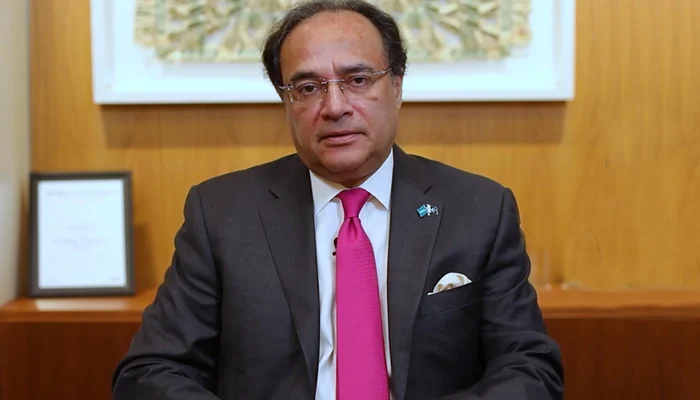|
Getting your Trinity Audio player ready...
|
Islamabad, Pakistan: On March 11, 2024, Pakistan’s 19-member cabinet was inaugurated, with a prominent figure emerging: Muhammad Aurangzeb. A seasoned banker with a successful career at Habib Bank Limited (HBL), Aurangzeb takes the helm as Finance Minister, tasked with tackling Pakistan’s daunting economic challenges.
A Well-Equipped Leader:
Aurangzeb boasts impressive credentials. A graduate of the prestigious Wharton School of Business, he brings extensive experience from his tenure at international banking giants like Citibank and JP Morgan. His commitment is further demonstrated by relinquishing his Dutch citizenship to comply with Pakistani regulations for holding public office.
Read More: Prospects of an $8-10 Billion IMF Loan Program Discussed by Ministry of Finance
Following a Legacy, Facing a Crisis:
Aurangzeb joins the ranks of prominent bankers who previously held the Finance Minister position, such as Shaukat Aziz and Shaukat Tarin. However, he assumes office at a critical juncture. Pakistan’s economy faces significant struggles under the leadership of Prime Minister Shehbaz Sharif and the PMLN government.
Immediate Concerns:
Negotiating a new International Monetary Fund (IMF) loan program is a top priority. The existing agreement expires in April, leaving Pakistan scrambling to address its staggering external debt exceeding $130 billion – a third of its GDP. Dwindling foreign currency reserves of merely $7.8 billion further exacerbate the situation, insufficient to cover even two months of imports. Currency devaluation exceeding 50% over two years and alarming inflation rates paint a dire picture.
Reform Through Experience:
Aurangzeb’s financial expertise signals the government’s commitment to economic reform, even if these measures might be unpopular. Economist Khurram Schehzad emphasizes the need for long-term strategies alongside individual qualifications. While Aurangzeb’s lack of political baggage might facilitate a reform-oriented approach, analysts anticipate a rigorous engagement with the IMF, prioritizing economic growth and structural overhauls.
A Call for Long-Term Vision:
Economists like Ammar Habib Khan advocate for a macroeconomist with a nuanced understanding of long-term reform trajectories. They caution against short-sighted solutions.
A Challenging Road Ahead:
Aurangzeb inherits a daunting task. He faces immense challenges amidst heightened expectations. His leadership will be pivotal in navigating Pakistan’s economic course towards recovery.

